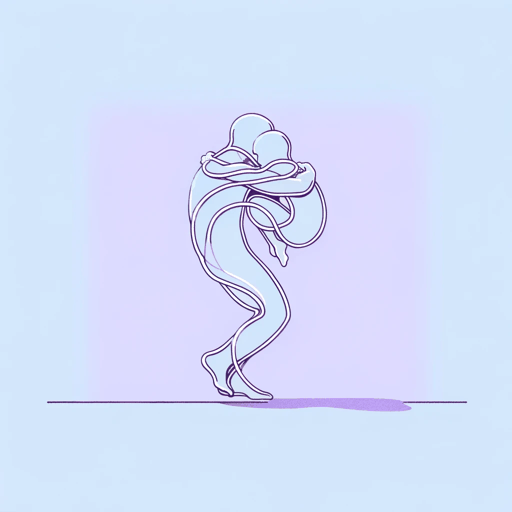20 pages • 40 minutes read
Theodore RoethkeMy Papa's Waltz
Fiction | Poem | Adult | Published in 1942A modern alternative to SparkNotes and CliffsNotes, SuperSummary offers high-quality Study Guides with detailed chapter summaries and analysis of major themes, characters, and more.
Literary Devices
Ballad
The form here is regular and predictable; the poem is a regimented, careful structure. Reflecting Roethke’s study and his appreciation of traditional poetic forms, “My Papa’s Waltz” is a ballad form: The story is delivered in rhymed quatrains (or four-line stanzas) in which the first and third lines rhyme and the second and fourth lines rhyme. This form recalls centuries earlier, when minstrels would travel town to town and sing these ballads, using the rhyme scheme as a memory tool. Indeed, Roethke’s poem has been transcribed as a folk song and as a waltz.
The irony here is that this carefully structured form shares an account of a night in which a drunken father unleashes a quiet chaos in his own kitchen in compelling his hesitant young son to dance with him. The tidy form emphasizes the conflict central to understanding the psychological impact of this memory on the boy, now a grown adult. The boy understands order; he understands a kitchen with the pans on the shelf and his father, when sober, going about his day. This night, however, the child is introduced to a world of unsettling chaos even as he clings to the idea of reassuring stability and order, suggested here by his desperate clinging to his father’s shirt even as he is whirled about the kitchen.

